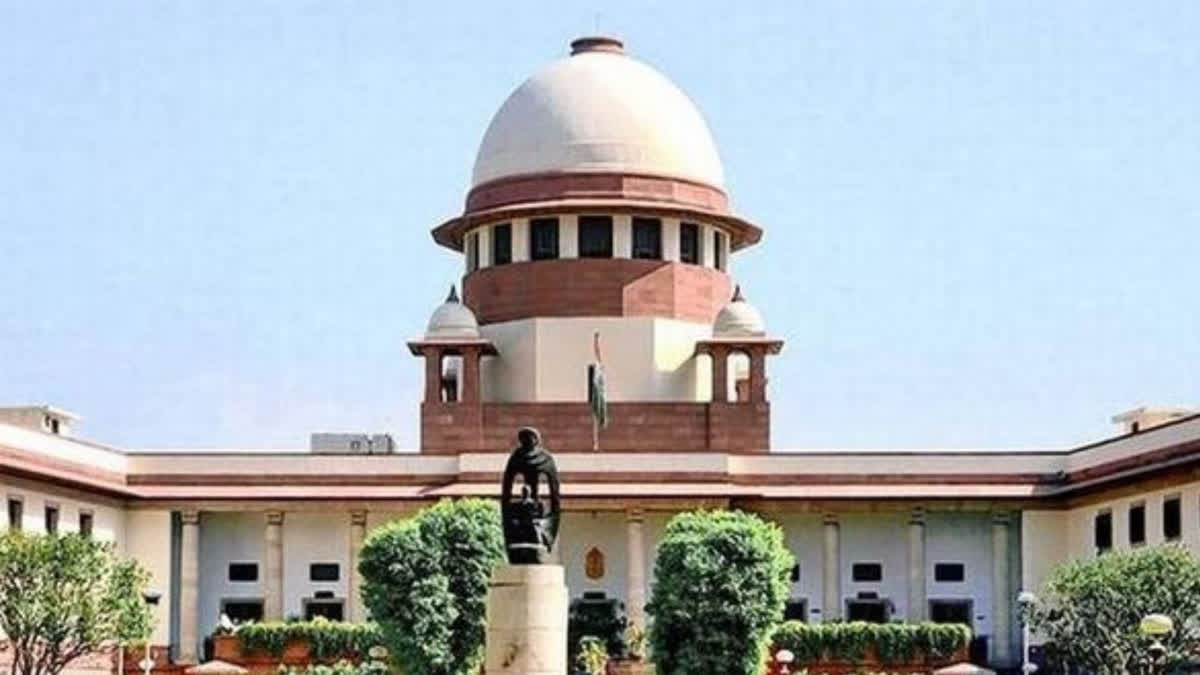New Delhi : The Supreme Court Monday questioned the delay on the part of the governor of Tamil Nadu in disposing of bills submitted for his assent, saying that the bills have been pending since January 2020, and what was the governor doing for three years?
A bench led by Chief Justice of India (CJI) D Y Chandrachud and comprising justices J B Pardiwala and Manoj Misra asked the Attorney General (AG) R Venkataramani that the court passed the order on November 10, and these bills have been pending since January 2020, and it means that the governor took the decision after the court issued notice. The CJI asked, “why should the governor wait for parties to approach the Supreme court? What was the governor doing for 3 years?”
The AG submitted before the bench that the dispute is only related to those bills which seek to divest the governor's powers relating to the appointment of vice chancellors in state universities and since it is an important issue, some reconsideration is required. The AG stressed that the governor is not merely a technical supervisor, while opposing submissions by a battery of senior advocates representing the Tamil Nadu government – A M Singhvi, P Wilson, and Mukul Rohatgi.
During the hearing, Tamil Nadu government counsel stressed that the Article 200 does not mean that the governor withhold bills, and there has to be a reason attached to it and the governor cannot just say that “I withhold assent”. Singhvi said the principle is that it equates to a money bill after one return.
The CJI observed that the governor under the substantive part of Article 200, has three courses of actions- he can assent, withhold, reserve for president. “When he withholds assent, does he necessarily need to send it for reconsideration? The proviso says ‘may’...”, the bench noted. Singhvi said "as soon as possible" and the phrase is very clear.
The CJI observed, “when you withhold assent, you have to send it back to the House or say that I'm sending it to President….”. Singhvi queried, does he have a pocket veto? The CJI further queried after the house repasses the bill, can the governor then send it back to the President? Singhvi said no, because you have chosen a path and the object was never for the governor to sit on the bill.
The apex court noted that the oldest of the pending bills was sent to the governor in January 2020, and recorded dates on which the ten bills were sent to the governor's office, from 2020 to 2023. The AG said that the present governor RN Ravi assumed office only in November 2021. The bench replied that the issue is not whether any particular governor delayed but whether in general there has been a delay in exercising constitutional functions.
Wilson submitted that if the governor is allowed to withhold bills indefinitely, the governance will be paralysed and the Constitution never envisaged such a power for the governor. The apex court was informed that after it issued notice on the petition, the governor stated that he had "withheld the assent" on certain bills, and following that, the legislative assembly convened a special session and readopted those very same bills.
The bench was informed that now fifteen bills are pending before the governor, including ten bills which have been "re-passed" by the assembly.
The bench asked whether the governor can send the bill to the President after the bill has been re-passed by the house? The Tamil Nadu counsel said such a course is not open to the governor after the bill has been passed again.
The bench noted that the governor's office has received altogether 181 bills, out of which assent has been granted for 152 bills, and five bills were withdrawn by the government itself and nine bills have been reserved for the assent of the president and assent has been withheld on ten bills. Five bills, which were received in October 2023, are under consideration, it noted.
The apex court has scheduled the matter for further hearing on December 1.
The Tamil Nadu government moved the Supreme Court against delay by governor RN Ravi in assenting bills passed by the state legislature saying it has brought the entire administration to a grinding halt and claimed that he has positioned himself as a “political rival” to the legitimately elected government.
The state’s plea contended that the governor by not “signing remission orders, day to day files, appointment orders, approving recruitment orders, granting approval to prosecute ministers, MLAs involved in corruption including transfer of investigation to CBI by Supreme Court, bills passed by Tamil Nadu legislative assembly” is bringing the entire administration to a grinding halt and creating adversarial attitude by not cooperating with the state administration.
The plea said the governor “has positioned himself as a political rival to the legitimately elected government by hindering and obstructing the legislative assembly's ability to carry out its legislative duties by unjustly and excessively delaying the consideration of bills that the assembly has passed”.
Read More



